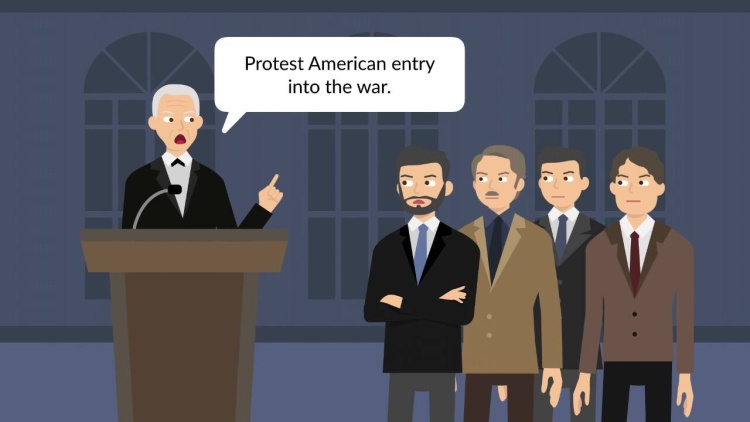Debs v. United States
United States Supreme Court
249 U.S. 211 (1919)
- Written by Megan Petersen, JD
Facts
The Espionage Act of 1917 (EA) made it a crime to “convey information with intent to interfere with the operation or success of the United States or to promote the success of its enemies.” The EA had the effect of constraining sedition and political speech during World War I. In 1918, Eugene Debs (defendant), leader of the Socialist Party of America, gave a speech protesting the United States’ involvement in World War I. He was indicted in federal district court on the grounds that his speech caused and incited disloyalty, mutiny, and refusal of duty in the military and naval forces of the United States. Additionally, Debs was alleged to have obstructed and attempted to obstruct the draft and recruitment of persons into the military. He was found guilty on all counts and sentenced to prison. Debs challenged his conviction on the grounds that the EA violated his First Amendment right to freedom of speech. The United States Supreme Court granted certiorari.
Rule of Law
Issue
Holding and Reasoning (Holmes, J.)
What to do next…
Here's why 904,000 law students have relied on our case briefs:
- Written by law professors and practitioners, not other law students. 47,100 briefs, keyed to 995 casebooks. Top-notch customer support.
- The right amount of information, includes the facts, issues, rule of law, holding and reasoning, and any concurrences and dissents.
- Access in your classes, works on your mobile and tablet. Massive library of related video lessons and high quality multiple-choice questions.
- Easy to use, uniform format for every case brief. Written in plain English, not in legalese. Our briefs summarize and simplify; they don’t just repeat the court’s language.





